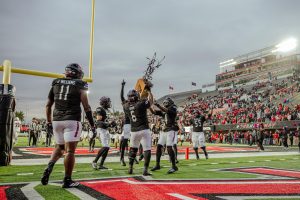Task force rejects recommendations
November 2, 1987
Although NIU’s Constitutional Task Force has revised parts of the proposed constitution and bylaws, members decided not to make some additional changes which were suggested by university constituents.
Task Force Chairman Jim Giles said the task force rejected a suggestion to include in the constitution and bylaws the formation of a faculty senate. He said the task force thought the recommendation might “seriously” change or weaken the balance of power in the University Council. “My suspicion is that whatever happens, the faculty will continue to get stronger,” Giles said.
In the proposed document, the task force did increase faculty representation on the council from 23 to 28 members.
In addition, the UC began talks on the possible formation of a faculty senate at its Oct. 21 meeting. The president of NIU’s chapter of the American Association of University Professors Gordon Dorn presented the council with four principles the AAUP supports for the implementation of a faculty senate.
After discussion by council members, UC Executive Secretary Judith Bischoff requested additional information about the structure of a faculty senate be presented to the council in order to further investigate the senate’s development.
In response to another concern raised by NIU Ombudsman Bertrand Simpson the task force decided not to change the requirement of a two-thirds vote by the Ombudsman Review/Search Committee needed to reappoint the ombudsman to a second term.
At the open hearings, Simpson questioned why a two-thirds vote was needed. “A two-thirds vote of the review committee does not make sense to me. It does not seem fair,” he said.
Giles said the task force decided to keep the two-thirds vote because the ombudsman position was first conceived as a one-term appointment. “The two-thirds vote was a compromise for those who wanted a second term,” Giles said.
The task force also did not adopt suggestions by the Council on Instruction. COI members recommended two changes regarding a standing committee of the proposed undergraduate council which included increasing the number of college representatives on the undergraduate curriculum committee.
In addition, COI members requested there be a means by which the standing committee could funnel proposals back to the college curriculum committees if there appeared to be any problems with them.
Giles said the task force decided that because the constituent the COI was concerned about was only a subcommittee, the changes seemed “unnecessary.”
The UC will hear the first reading of the constitution Tuesday.






